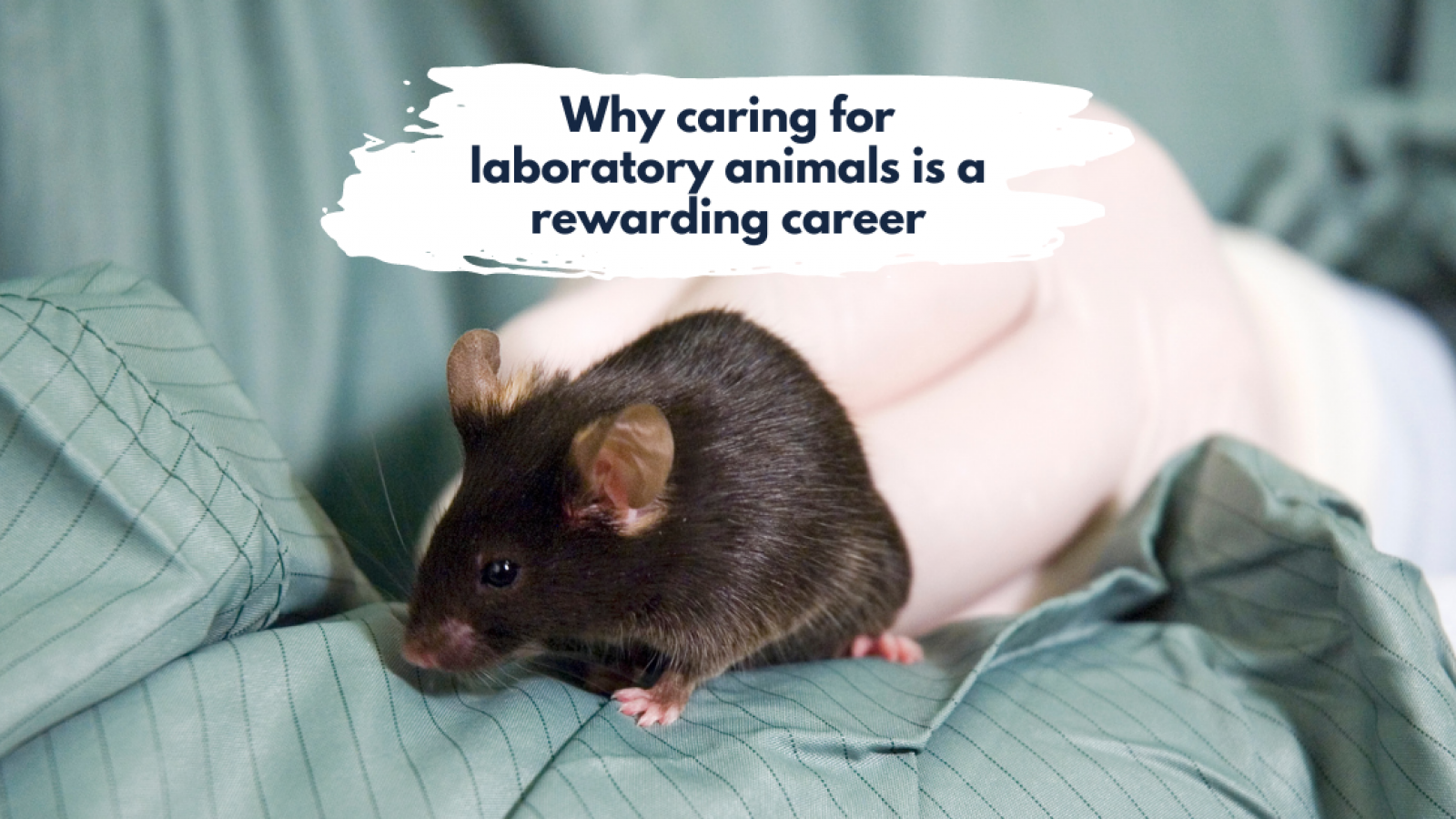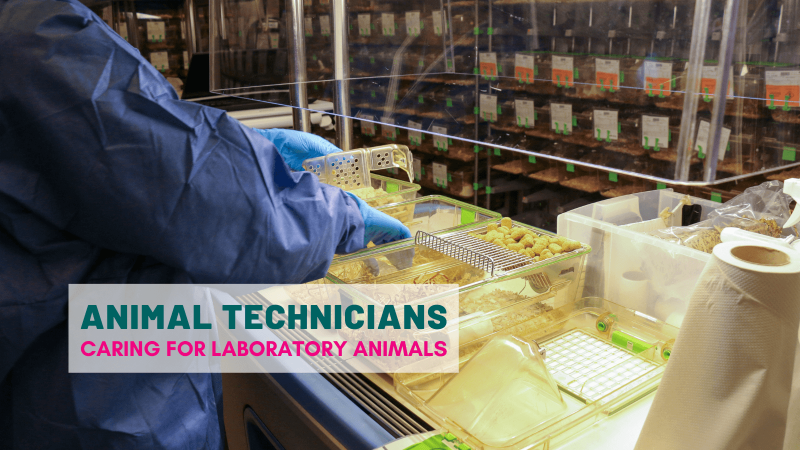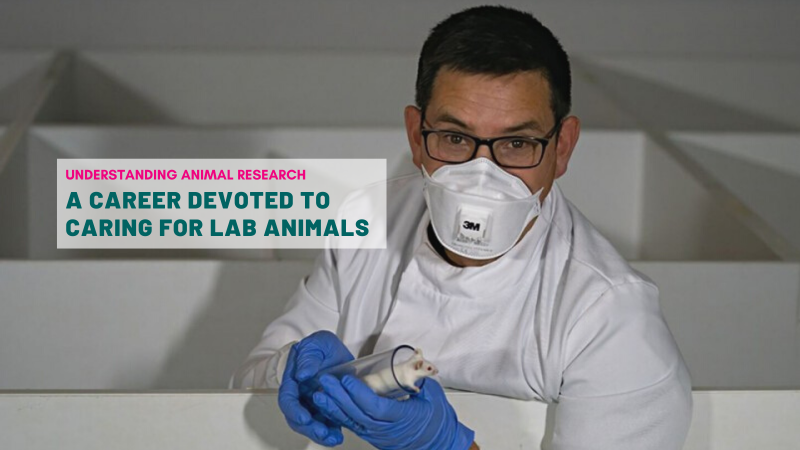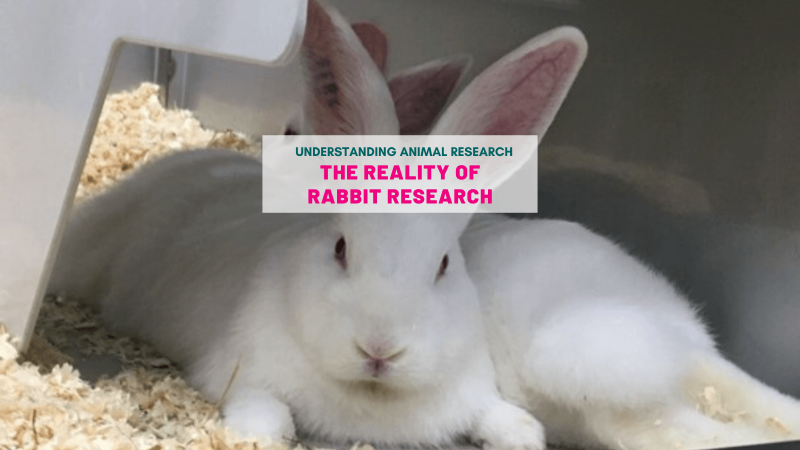Loving animals and working in an animal research facility is not paradoxical. We talked to John, a senior animal care technician at Newcastle University, about what it is like to be a lab technician working with animals. He stands by the idea that good animal technicians are those that love animals and want to care for them, otherwise they aren’t doing their job.
At 19, John had just finished college and was eager to work with animals:
“I became an animal tech for the simple reason that I wanted to work with animals. I’ve always had an affinity with animals, probably more than with people. I think it’s good for the soul to be around them so I wanted to find a job where I cared for them and was in contact with them.”
John was very rapidly drawn to becoming an animal technician in a research facility. For him, loving animals and working in a research facility where experiments on animals are conducted is not a contradiction, on the contrary.
“We have to do tests on animals by law. It is going to happen whether I’m here or not. I think it is better the job is done by someone like me, that loves and cares for the animals and makes sure they have the best life, rather than someone who isn’t that bothered.”
“People think that to do animal testing, you’ve got to be cruel to animals. But on the contrary, you’ve got to love them. That’s the precursor, everything else is secondary. In fact, 99.9% of techs I know are absolute animal lovers and have animals at home. I know colleagues that own chickens, goats and even lizards.”
“Of course, it’s not always easy. There are some difficult times and you can sometimes get upset. But at the end of the day, I remember that I am here for the animals and it is worth it. That’s why I get up in the morning. I mean, I get paid to play with and care for animals. We treat them like pets. It’s the best, I love my job.”
Working as an animal technician you also get a chance to be part of something bigger than you, according to John:
“We are also a part of the science and it can be mind blowing. It feels like what you’re doing is worth something. This can also be quite stressful because the animals have a scientific purpose and are part of someone’s life work. There is no room for error. But at Newcastle, the relationship between the techs and the scientists is just amazing. It’s mutual trust. It’s a fantastic working relationship. The scientists listen to the techs and their advice in terms of animal welfare and replacement, reduction or refinement strategies.”
Animal technicians receive special training regarding the implementation of the 3Rs – the ethical framework designed to protect animal welfare.
“It’s engrained in every technician. The ethics of animal research, why we use the animals and how we can reduce the numbers, better care for them and make sure they don’t suffer are a big part of our training.”
The whole day of an animal technician in a research facility is focused around the wellbeing of the animals.
“It is on our mind first thing in the morning and last thing in the evening. We start and end our day by checking for food and water, making sure every animal is well and in good conditions. We take pictures of the animals to prove that everything is in order. The afternoon is often dedicated to dealing with researcher requests. We do things like genotyping, injections or even assisting surgical procedures, and of course paperwork.”
For John, this work is beyond rewarding:
“The work is fascinating and there’s great scope to progress and get involved in the science. Anybody who’s thought about getting into the industry should give it a chance.”
Last edited: 24 May 2023 10:28




